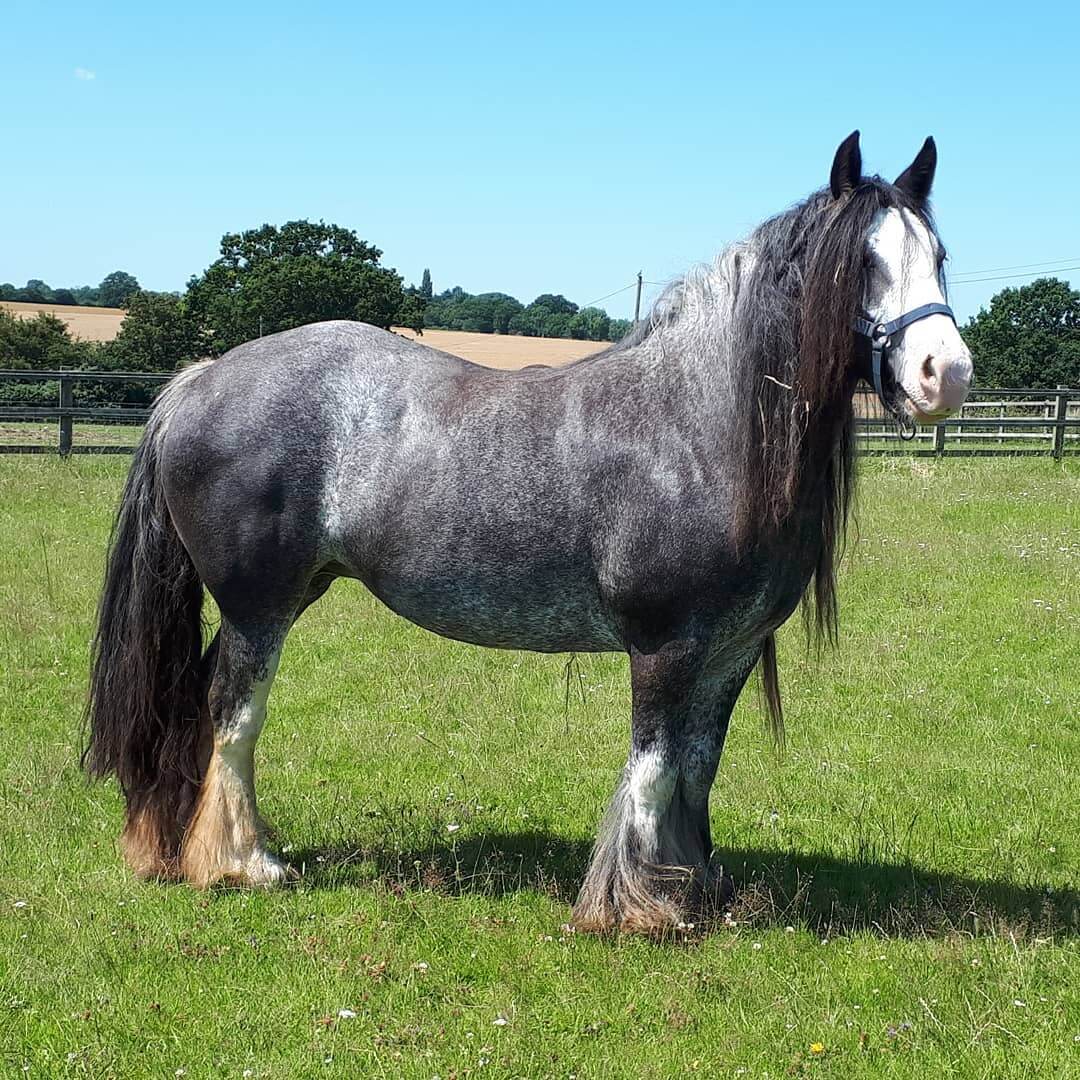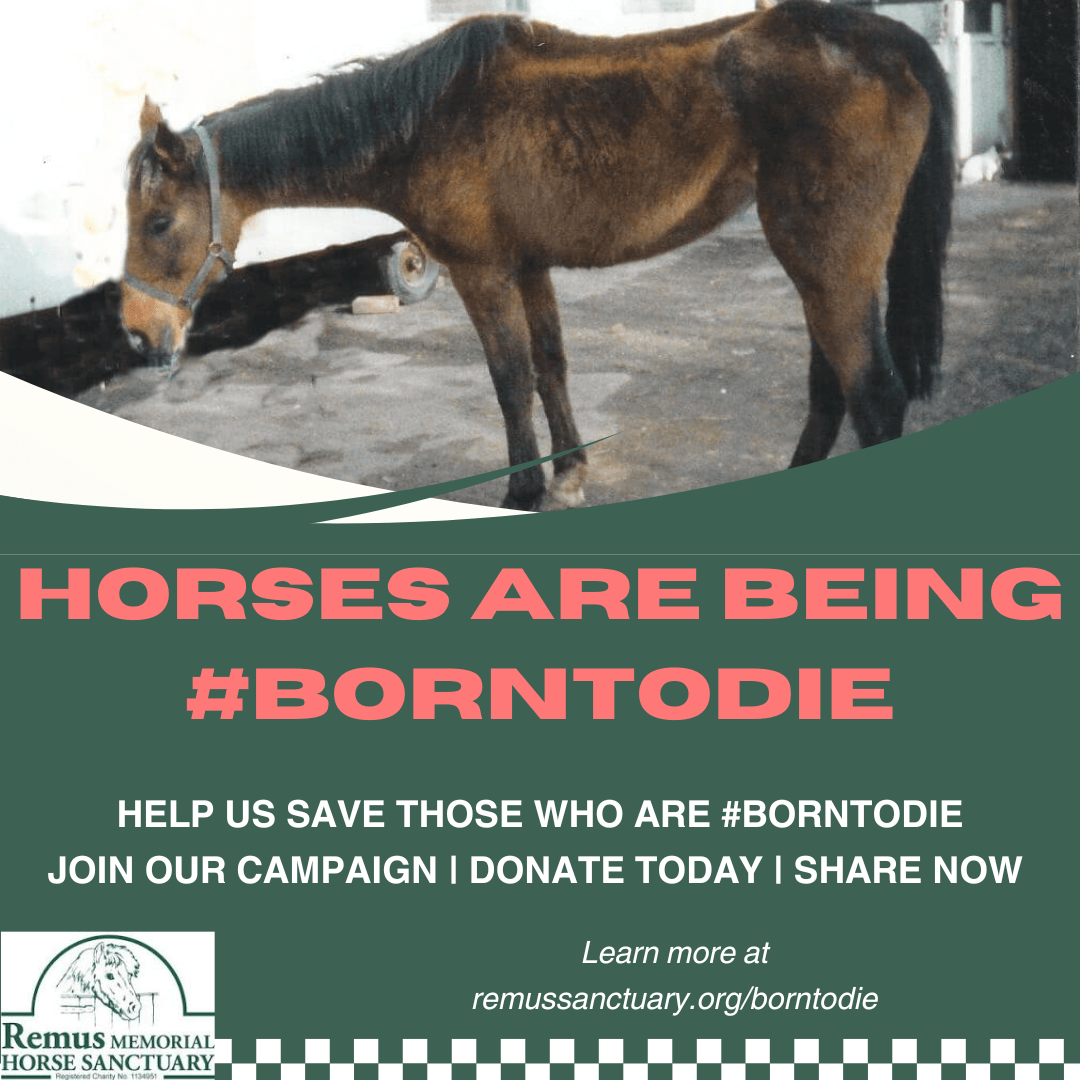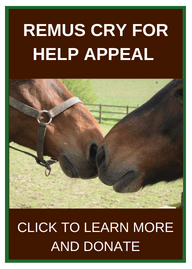


Seven Million Horses at Risk – Remus Backs Call for Legal Reform
Remus Horse Sanctuary welcomes the recent call from World Horse Welfare (WHW) urging the European Union to strengthen animal welfare laws and better protect the continent’s seven million equines. The charity’s report, Invisible Horses, highlights the lack of species-specific legislation and enforcement across the EU, leaving many horses, donkeys, and mules vulnerable to neglect, abuse, and exploitation. The report reveals that equines often fall through the cracks of existing regulations, particularly during transport, at slaughterhouses, and when used for work or tourism.
WHW’s recommendations include creating EU-wide minimum standards of care for equines, improved enforcement mechanisms, and greater recognition of the vital role equines play in rural economies. The charity also stresses the importance of educating owners and authorities to ensure that all equines are treated with the respect and dignity they deserve.
Sue Burton, Founder of Remus Horse Sanctuary, said: “This long-awaited review is not only necessary but urgent. Equines across Europe have suffered in silence for too long, and we wholeheartedly support WHW’s call for action. It’s time these animals were properly recognised in law and given the protection they need and deserve.”
The call for legislative reform also echoes the Sanctuary’s own Born to Die campaign, which highlights the thousands of horses in the UK bred each year only to be discarded, neglected, or slaughtered when they are no longer wanted. The campaign raises awareness of this heartbreaking cycle and calls for greater responsibility and accountability within the equine industry. Like WHW’s report, it reinforces the urgent need for stronger, enforceable laws to protect equines at every stage of their lives.
The White Paper ‘Good Welfare for Equids’ can be viewed online.
If you would like to find out more about the vital work at Remus Horse Sanctuary, you will be able to visit on Sunday 1 June from 1pm until 4pm, for one of the Sanctuary’s family and dog-friendly Open Days. Book your ticket online at: https://www.remussanctuary.org/events/open-day-at-the-sanctuary-june/ or contact the Sanctuary on: 01277 356191.
How to Spot and Soothe a Stressed Horse
Just like humans, horses get stressed and, just like us, it can be for different reasons – and show itself in numerous ways.
Whether your horse is under acute stress (ie, of the moment, such as being moved in a horse box) or chronic stress (ie, constant or continual, such as inappropriate living conditions ) the clue to spotting it is a change in their behaviour.
Out-of-character actions such as nipping, being hard to catch, fidgeting or failure to concentrate, are all likely to be signs that your horse is showing acute stress. While lethargy, weight loss and irritability are likely to be caused by chronic stress.
We see many signs of stress in the new rescue horses that come to us here at Remus, whether it’s because they have been neglected and have been living in awful conditions, or because they are unfamiliar with their new surroundings when they arrive.
If you are concerned about stress in your horse, the first port of call is to get their health checked, followed by an assessment of their living conditions – they may be reacting to being stabled in the winter for instance.
Other things to consider are their diet, and the amount of exercise they are getting. It’s also important for safety reasons that your horse respects you and your space when handling – if they already try to mess about when being led, trying to handle them when stressed will be twice as hard.
Finally, if you know your horse is going to be in a stressful situation, such as being transported, it is possible to buy calming products. But do get advice from your vet before administering.
For more detailed information on stress, symptoms and strategies for calming horses, head to: www.yourhorse.co.uk/horse-care/horse-behaviour/stressed-horses.
We are currently running an appeal to raise funds for hay this winter. Please visit our JustGiving page to make a donation: Remus Winter Hay Appeal 2024.
Help your Vet Help your Horse
As you’ll know, at Remus Horse Sanctuary we rescue many elderly and sick animals, so our vet is a regular, and very welcome, visitor.
But when your horse is injured or ill, sometimes we are tempted to treat it ourselves – especially if we are worried about the vet’s bills. Of course, most experienced owners have their own tips and tricks for minor issues – but if you think that your animal will need a visit from the vet, here’s three things to avoid:
- Applying anything to a wound – if you know it’s severe enough to call out the vet, avoid applying purple spray or wound powder – it makes it hard for them to properly assess discharge or the colour of the tissue, which can be vital in diagnosis.
- Removing a penetrating object – our first instinct might be to pull it out – but without a qualified examination, and possibly an x-ray – you could do more harm to your animal.
- Not vaccinating your horse – even if your horse never leaves the yard, they could pick up tetanus from a puncture wound – and the survival rate from this common disease is particularly poor in horses. Don’t take the risk and ask your vet for advice.
For more information on this subject head to: www.yourhorse.co.uk/horse-care/vet-advice/5-things-your-equine-vet-wishes-you-wouldnt-do/.
If you would like to support our welfare work and rescue efforts, please make a donation.
Your support is invaluable.
Remus 40th Anniversary Fundraising Challenge
Ahead of its first Open Day of 2023 on Sunday 7 May, Remus Horse Sanctuary based in Essex, is launching its 40th Anniversary Challenge to raise £40,000 during the remainder of the year.
Sue Burton, Founder of the Sanctuary is asking its staff and volunteers, trustees and patrons, members, sponsors and supporters to fundraise just £40 each. Coming together in this way would help achieve the 40th Anniversary target – to help stop any animal from being born to die.
In the last month alone, three dead horses have been dumped in Essex and one foal was left to die under a hedge in Kent.
Founder Sue said, “I started the charity after reading the headline on the front of the Romford Recorder in February 1983. It said ‘Doomed! 100 horses left to die’. Coming from London, I’d never even met a horse, and I couldn’t believe that in this day and age we allow animals to die and do nothing.
“Some days it feels like very little has changed. We’re doing everything we can at Remus to stop animals from being born to die; working with other charities, campaigning and fundraising, but still we need to do more.
“We know our current ask is a biggy, so we’re asking everyone we know to fundraise just £40 for us. But of course, there’s no need to stop there, perhaps they could raise more!
“This is a very serious subject which we’ll be expanding on in the Summer with our Patrons. In the meantime, we’re asking people who care about animals everywhere to join us in our mission and have a little fun at the same time.”
The reason behind the challenge may be a serious one but the idea is simple, how could you raise £40? Perhaps you could bake and sell 40 cakes; make and sell 40 cards or crafts; cycle 40 miles; swim 40 lengths; get together friends for a 40 minute Zumba class! Put on your creative hats and Sue and her team are sure you’ll come up with some crazy fun ideas!
The Remus 40th Anniversary Challenge is intended to help raise awareness of animals being born to die. Here’s how your fundraising will help the charity directly:
- £4 buys bandages for one of our laminitic ponies
- £40 would pay for a special set of shoes for one of our laminitic ponies
- £400 would provide straw bedding for 30 animals for 1 month
- £4,000 would provide the routine medications needed by the older animals for 2 months
- £44,000 would feed all of our horses, goats and sheep for 6 months
- £440,000 would enable the charity to run for a whole year!
For the past 40 years, Remus has helped thousands of animals – horses, ponies, donkeys, cats, goats, sheep and more – rescuing them from cruel and sometimes dangerous situations; rehabilitating them with the help of specialist medical attention from vets, farriers, and complementary therapists; and allowing them to develop into old age, living a life free of harm. Each and every one receives the love, care and attention that Sue Burton, founder of the Sanctuary, and her team provide.
Sue is asking, “Are you up for the challenge?” and for you to share the hashtag #NeverBornToDie.
For further information, visit donate.giveasyoulive.com/campaign/40-anniversary-challenge.
Tickets for the Open Day taking place on Sunday 7 May can be purchased online via the website at: www.remussanctuary.org/events/open-day-at-the-sanctuary-may or by telephoning the Sanctuary on: 01277 356191.
Celebrating 40 Years
2023 marks the Sanctuary’s 40th Birthday, which is an absolutely amazing achievement especially given all the setbacks and issues that we have faced over those years. We are proud to have done so much good work and touched, helped and saved so many horses, ponies, donkeys and other animals over the years but we could not have done it without you and your help and support. Thank you so much for all that you do and have done for Remus over the years, and to our staff and volunteers, our vets and suppliers, and the Holistic Team and Physiotherapists who all come together to do the very best that we can for as many needy animals as we can.
“Wherever man has left his footprints in the long ascent from barbarism to civilization, we find the hoofprints of a horse beside it!”
It’s been a busy winter at Remus. You’ll remember that in the summer we had no grass due to the heatwave – the paddocks turned to scrub and dust! Then in October and November it was so mild that the grass just kept growing and growing, so we experienced (and saw) a lot of laminitic cases at a time of year when you would not expect it. Since then, we’ve seen flooding and freezing, and snow, and more flooding. And freezing. Which is why we have just launched our winter hay appeal. Please will you help us?
There are lots of other ways you can help us too: are you able to get one new member signed up; get some of our leaflets out; organise a fundraising event for us; ask your local shop about taking one of our collection tins? The winter is a particularly difficult time for us at the best of times, but in the present economic climate, that of course, becomes much more difficult – so please if you can support Remus in any way it would be such a tremendous help.
Please do get in touch if you can make a donation towards the winter appeal – you can do so online or by calling the office to make a donation over the telephone, or by sending a cheque. It is so rewarding at the end of a working day to walk around the Sanctuary and see all the animals happy, contented and eating, and relaxed, and to know that they are all safe for life and will never have to fear hunger, pain or suffering again. YOUR help makes this possible.
Click to learn more and donate to our Winter Hay Appeal.
Use or Abuse – the Many Shades of Grey in the Horse World
As a horse sanctuary, our first consideration is for the animal, which is why our regular followers will know, we are not a fan of horse sports and events such as The Grand National.
So we were pleased to see that the theme of the 25th World Horse Welfare Conference in November, was ‘when does use become abuse?’
This year the international spotlight fell on horse welfare at the Tokyo Olympics where a German rider was seen whipping her horse, and the German coach was banned after punching the same animal.
Of course, not all eventers are as extreme or as high-profile, but it is good to see discussions taking place among experts, as the world’s views and the scientific evidence continues to change.
Read more about the debate at this year’s conference here.
If you’ve not already done so, we’d be grateful if you could take a look at our winter appeal to help raise funds to replace our perimeter fencing. Please visit our Just Giving page to find out more > www.justgiving.com/campaign/RemusFencing.
Worming Our Horses – The Future
The writing is on the wall for more equine disease and death if the industry does not take urgent, cohesive action against wormer resistance.
This was the view of experts at the 30th National Equine Forum on 3 March 2022. There is evidence of resistance to all four classes of worming drug available for use on horses, and no new types or drugs expected in the near future.
Sue Burton, Founder of Remus Horse Sanctuary said: “When we started 40 years ago I remember seeing horses who looked like they were passing blood, but it was the sheer amount of red worms in the faeces. Horses died from this. With the new version of anthelmintics that came into being, this is no longer something we see. But on the horizon is resistance to existing wormers and therefore we will have nothing that will be effective against worms in our horses and could well return to those awful days.
“Years ago we would all just worm our horses every time it was necessary but now we know that we have to be more pro-active and work with faecal egg counts rather than constantly using drugs. All of Remus’ animals have faecal egg counts taken, and are only wormed when necessary, thus reducing the risk of resistance.”
British Equine Veterinary Association (BEVA) president elect David Rendle, a specialist in equine internal medicine, said: “We know traditional worming strategies mean 80% of doses are completely unnecessary, and multiple surveys show that although use of diagnostics is improving, as few as 10% of people are using them appropriately.”
Mr Rendle said in the past year in the UK, 1.13m doses of wormer were given, and 120,000 faecal egg counts carried out, so about 11 doses for each count, which is “definitely the wrong way round”.
“The writing is on the wall for more death and disease, and pastures that can’t be grazed by horses,” he said. “That will have a radical effect on our industry, and it will be in years, not decades.”
Claire Shand, managing director of Westgate Labs, which carries out parasite diagnostics, said using faecal counts can reduce wormer use by about 80%.
“There’s absolutely no place any more for routine worming,” she said. “The humble egg count is the cornerstone of testing; they’re cheap, simple and we try to make them as easy for owners to use as we can. And we use them to maintain the efficacy of the wormers we do need to give.”
Ms Shand added that appropriate dosing is also key, for horses who do need to be wormed, as not giving enough for a horse’s weight also contributes to resistance.
“All horses need good parasite control, and it’s future generations we need to do this for, so we can keep grazing horses on our fields into the future,” she said. “My question is: what will you do when the wormers stop working?”
Sue Burton said: “The horse world needs to acknowledge this threat and wake up now and deal with this problem whilst there is still time to do so, but we need to act fast. We don’t want to return to the old days and the problems that horses suffered from needlessly.”
The first stage of the project, which is supported by the BEVA was initiated as a collaboration between Tim Mair of CVS Group and Julia Shrubb and Camilla Scott of the VetPartners equine clinical board. The first step involves asking horse owners, keepers, stud and yard owners and managers, to complete an online survey on their worm-control programmes.
The surveys, for horse owners and yard/stud owners/managers, are available online via the two links.
We urge you to take part.
Got a sweet tooth?
After a long weekend full of chocolate eggs, another Easter has come and gone. Whether you’re a creme egg fan or prefer a more traditional hot cross bun, we all deserve a treat now and again. Of course, our horses do too, but how do we know what’s safe for them and what should be avoided?
There are so many different treats on the market in all sorts of flavours, as well as plenty of natural options. Did you know horses actually prefer the taste of banana over mint, apple and even carrot? Those banana-flavoured treats suddenly don’t seem so odd, do they?!
What you probably did know is that carrots are full of sugar, so while many fruits and vegetables can be safely fed in moderation, looking for low sugar options is advised. Another thing to look out for is how long they take to chew. Whether you love it or hate it, celery is a really good option because it takes a long time to chew, which generates more saliva production. Saliva is alkaline and can protect against gastric ulcers. Low sugar and beneficial to the digestive system? It seems celery could be the new treat of choice!
Take a look at this article from Horse & Hound for more healthy treats you may not have thought of feeding: https://www.horseandhound.co.uk/features/safe-treats-for-horses-644034.
If you’d like to buy a treat for a Remus animal or provide feed for one of the many tethered horses in the area, you can do so online via our website at: www.remussanctuary.org/product-category/animal-treats.
What seems like kindness could kill
February is the month of love and kindness. Unfortunately, the horse world has been experiencing some perceived acts of kindness by the public, which have sadly had dire consequences for too many of our beloved equines.
Since the first lockdown last year, many more people have been taking to the countryside for walks. At the same time, the British Horse Society (BHS) has been made aware of increasing instances of horses becoming ill, or even dying, as a result of the public feeding them or other acts such as leaving gates open. The BHS subsequently launched their #BeHorseAware campaign to raise public awareness of the suffering that can be caused.
However, in recent months, cases have continued to rise and both the equestrian and national press have been publishing news stories of tragic instances up and down the country. Just last month, a distressing image of a pony choking on some chopped carrots left on the ground in the New Forest went viral. Riders and owners have also started getting together to come up with ways to raise awareness; a new Facebook group called “Stop Feeding our Horses” attracted almost 4,000 members in its first week.
The BHS have now teamed up with the University of Bristol whose research showed that more than three quarters of horse owners surveyed found that their horses were fed without their permission, and that nearly a third became unwell as a result, with half of these needing veterinary treatment. Shockingly, 16 percent of these sadly died or were euthanised.
You can read more about the study and link through to the BHS #BeHorseAware campaign at: www.bristol.ac.uk/news/2021/january/behorseaware
For genuine concerns about a horse, pony or donkey in distress, please complete the Remus Horse Welfare Watch Report Form and email to: info@remussanctuary.org.
For out-of-hours emergencies, please call the RSPCA on tel: 0300 1234 999.
To find out more about the Remus Horse Welfare Watch, click here.
And if you would like to contribute to our ‘Feed a Tethered Horse Campaign’ you can find out more and do so here.
Social Behaviour in Horses
January has rolled around again; the month of fresh new starts and exciting exercise regimes, well, in usual years at least! While January 2021 may still consist of some of that, it also consists of ‘bubbles’ and ‘social distancing’, which is not so different to some interesting new research into horses’ herds from the University of Bristol and Royal Veterinary College.
The research is based on how the social behaviour of horses living in herds can influence their body condition. Much like if we live with people who play video games all day, we might do the same, but if we live with keen walkers, things might be very different!
The researchers looked at the social dominance of each equine and how often their grazing was disturbed – through vigilance, movement and social interactions, positive or negative. As you might expect, higher vigilance was linked to a lower body condition score, as these horses spent less time grazing.
It goes to show that a horse who is underweight or overweight can be helped by who it is turned out with. An overweight horse will spend less time grazing if it spends more time grooming or playing with its field mates.
At Remus, our residents are turned out in small groups for a harmonious environment. However, other horses aren’t so lucky and we do experience large herds together, particularly in instances of fly grazing. Unfortunately some horses in these types of situations suffer socially, which has an impact on their physical and mental wellbeing.
You can read more about the research at: www.horseandhound.co.uk/news/horses-social-behaviour-could-influence-their-weight-survey-finds-733449.
If you would like to buy food for an animal for a week or a tethered horse, you can do so online on our website at: www.remussanctuary.org/product-category/animal-treats.










